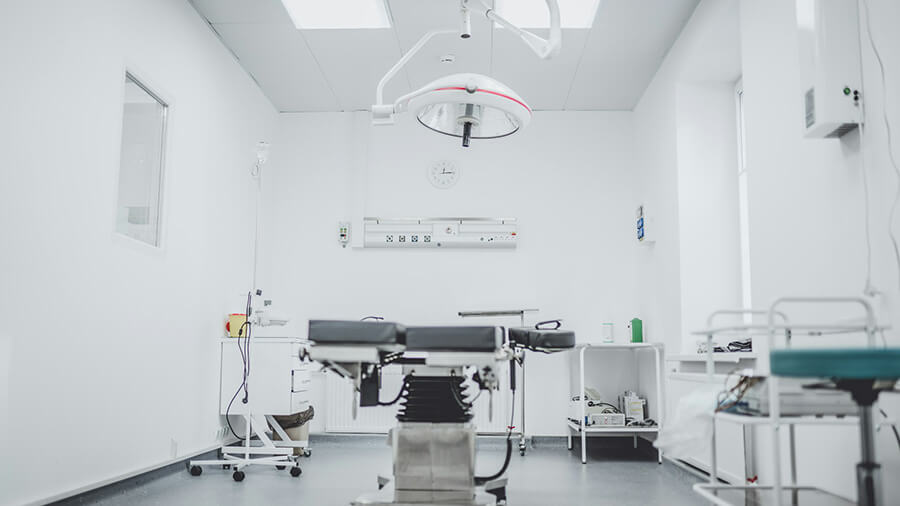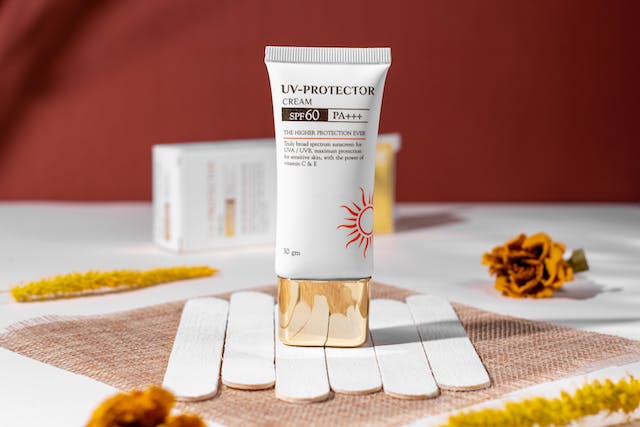Blog
Posted on: April 12th, 2024

Have you ever considered how your mind perceives your body, especially when thinking about plastic surgery? Body Dysmorphic Disorder (BDD) is a common concern that often goes unnoticed. It’s a condition where people can’t stop thinking about perceived flaws in their appearance — usually invisible to others. Recognizing and addressing these psychological concerns before plastic surgery is not just important. It’s a step towards ensuring your well-being. In this journey, understanding BDD and seeking psychological counseling before deciding on surgery can make a significant difference in your experience and results.
Understanding Body Dysmorphic Disorder
Body Dysmorphic Disorder (BDD) might seem elusive, but it’s a very real and challenging condition for many. Imagine constantly being preoccupied with a part of your body you see as flawed, even if others don’t notice anything unusual.
That is the daily reality for individuals with BDD. Surprisingly, a significant number of people considering plastic surgery may be living with this disorder. It’s more than just an occasional worry about appearance. It’s an ongoing obsession that can consume one’s thoughts.
Take, for example, someone who sees their nose as disproportionately large despite others not noticing anything out of the ordinary. This perceived flaw becomes a focal point of distress and discomfort for them. Recognizing these feelings and experiences is the first step in understanding BDD.

Body Dysmorphic Disorder makes individuals overconcerned with their looks.
Why Recognizing BDD is Critical Before Surgery?
Identifying Body Dysmorphic Disorder before opting for plastic surgery is more than just a precaution. It’s a necessary step in protecting your mental health and satisfaction with the results. Surgery can significantly alter one’s appearance, but for someone with BDD, the underlying psychological issues may not be resolved by physical changes alone.
In fact, without addressing these issues, the desired outcome of the surgery might not meet the individual’s expectations, leading to further dissatisfaction. For instance, if a person undergoes a procedure to correct a feature they perceive as flawed, they might continue to feel unhappy with their appearance because the root cause is their perception, not the physical trait itself.
That is why psychological evaluation and counseling play a major role in the journey toward plastic surgery. They help align expectations with realistic outcomes, ensuring a more positive experience and outcome.
Identify Psychological Concerns Before Plastic Surgery
Spotting the signs of psychological concerns, like Body Dysmorphic Disorder, before plastic surgery is key to making informed decisions. It’s not always straightforward, but there are certain indicators to watch for. If you’re considering surgery, pause and reflect on the following points:
- Obsession with a Body Part: Are you constantly fixated on a certain aspect of your appearance, feeling that it must be changed at all costs?
- Frequent Mirror Checking or Avoidance: Do you constantly check your reflection or avoid mirrors altogether because you are distressed about your appearance?
- Social Withdrawal: Have you started avoiding social situations or activities you once enjoyed, fearing judgment or criticism about your looks?
- Repeated Procedures: Have you undergone multiple cosmetic procedures but still feel unsatisfied with your appearance?
Recognizing these signs is not about self-diagnosing but understanding when to seek professional guidance. It’s about acknowledging that unaddressed psychological concerns might cloud how you see yourself. This self-awareness can lead to more beneficial outcomes from any decision regarding plastic surgery.

Those with BDD always feel examined by those around them.
Managing Expectations: A Key Step
Setting realistic expectations is a crucial aspect of preparing for plastic surgery. It’s not just about the physical change. It’s about how this change aligns with what you’re hoping to achieve. This step involves open and honest discussions with your surgeon about potential outcomes.
For example, a surgeon can help you understand what is realistically achievable, considering your unique body and health. It’s important to remember that plastic surgery can enhance and improve appearance, but it has limits. Sometimes, what we hope to achieve might not align with what is surgically possible.
That is where the expertise of a skilled surgeon comes in – guiding you to understand the potential and limitations of a procedure. By aligning your expectations with realistic outcomes, you’re more likely to feel satisfied and at peace with the results, making your journey through plastic surgery a more positive and fulfilling experience.
Strategies for Dealing with Psychological Concerns
When facing psychological concerns like Body Dysmorphic Disorder before plastic surgery, adopting effective strategies is important. One vital step is seeking professional help. Therapists and counselors specializing in these issues can offer invaluable support and guidance. For instance, Rosewood Ranch, a reputable center known for its expertise in treating eating disorders and BDD, provides a comprehensive approach to managing these conditions. They focus on the symptoms and look into underlying causes, offering a holistic path to better mental health.
Apart from such specialized centers, other strategies include engaging in mindful practices, such as meditation or yoga, which help foster a healthier body image and reduce anxiety. Equally important is having honest conversations with your surgeon about your psychological state, as this can influence the surgery decision and outcome. By combining professional therapy, personal wellness practices, and open communication with your healthcare provider, you’re setting yourself up for a more informed and healthier journey in considering plastic surgery.

Counseling and therapy are important for those facing psychological concerns like BDD.
The Role of Support Systems
A strong support system is invaluable when deciding on plastic surgery. Family and friends can offer emotional support and practical assistance, helping individuals feel more confident and reassured in their choices.
In addition, support groups of individuals who have undergone similar experiences can provide a sense of belonging and understanding, reducing feelings of isolation. By surrounding oneself with caring and supportive individuals, the journey towards plastic surgery becomes less daunting and more manageable, ultimately leading to a more positive and fulfilling outcome.
Embrace Confidence with a Clear Mind
Understanding and addressing psychological concerns before plastic surgery is the key to a successful and fulfilling experience. By recognizing the signs of Body Dysmorphic Disorder and seeking appropriate support and counseling, individuals can approach surgery with confidence and clarity. Managing expectations, adopting effective coping strategies, and leaning on supportive networks can make all the difference. After all, your well-being matters just as much as your desired appearance. With the right mindset and support, you’re equipped to embrace your journey towards plastic surgery with confidence and positivity.
Posted on: March 18th, 2024

California, known for its glittering entertainment industry, often sets global fashion, film, and music trends. But beneath this allure lies a less glamorous reality: the intersection of substance abuse and body image pressure in California’s entertainment industry. This complex issue demands our attention, not only in California but worldwide.
The Reality of Body Image Pressure in the Entertainment Industry
The pressure to maintain a certain physical appearance is immense in California’s entertainment industry. Actors, models, and musicians are often expected to conform to unrealistic beauty standards. This relentless pursuit of an idealized body image can lead to extreme measures, where the impact goes beyond physical health, affecting mental well-being, too.
The Role of Media and Public Perception
Media portrayal plays a significant role in perpetuating these standards. The constant bombardment of ‘perfect’ body images through movies, TV shows, and advertisements creates a twisted perception of normalcy. Young, impressionable individuals in California, dreaming of making it big in the industry, are particularly vulnerable to these portrayals.
This continuous exposure shapes their goals and self-esteem, often leading to a relentless chase for physical perfection. The role of social media amplifies this effect, where instant feedback and comparison are just a click away, further embedding these unrealistic standards in the collective psyche.

Media shapes public perceptions
The Plastic Surgery Phenomenon
The appeal of plastic surgery in the entertainment industry is undeniable. In a world where one’s appearance can significantly impact career prospects, the temptation to ‘enhance’ one’s features is overwhelming. Celebrities often find themselves succumbing to the pressure of undergoing cosmetic procedures – sometimes to the point of addiction. Here are some possible reasons individuals might turn to plastic surgery for comfort.
Body Dysmorphia Syndrome
Body Dysmorphia Syndrome (BDS) is a mental health disorder characterized by obsessive focus on perceived flaws in one’s appearance, often not noticeable to others. In Hollywood, where physical appearance is intensely scrutinized, individuals with BDS find themselves in a particularly vulnerable position. The constant exposure to idealized beauty standards exacerbates their condition, leading many to seek solace in plastic surgery.
Obsessive-Compulsive Disorder (OCD)
OCD can sometimes manifest in obsessions about one’s appearance. This may lead to compulsive behaviors like seeking surgery to alleviate the distress caused by these obsessions.
Eating Disorders
Conditions such as anorexia nervosa, bulimia nervosa, and other eating disorders often involve a distorted body image. People with these disorders may pursue plastic surgery to achieve a body shape that aligns with their distorted self-image.
Depression and Anxiety
In some cases, individuals with depression or anxiety may seek plastic surgery as a way to improve their self-esteem or alleviate their depressive or anxious symptoms. However, without addressing the underlying mental health issues, surgery may not provide the psychological relief expected.
Substance Abuse: A Dangerous Coping Mechanism
To cope with the immense pressure of maintaining a specific body type, individuals may turn to substance abuse. The intersection of substance abuse and body image pressure in California’s entertainment industry can be detrimental to many. The use of drugs or alcohol can start as a means to control weight, manage stress, or escape from the harsh realities of the industry.
This behavior is often glamorized or normalized within certain circles, masking the serious risks involved. Substance abuse, initially seen as a tool for coping or fitting in, can quickly spiral into addiction, further complicating an individual’s physical and mental health challenges.

An unhealthy body image can lead to substance abuse and body image pressure in California
Support Systems and Professional Help
For those struggling with substance abuse and body image pressure, seeking professional help is of the utmost importance. Therapy, support groups, and rehabilitation programs can provide guidance and support. Among the many rehabilitation centers dealing with the harsh repercussions and addictive behaviors that body image pressure can cause, Recovery Beach Orange County stands out. As a renowned rehabilitation center in California with over twenty years of experience in the field, professionals in this institution have acquired the experience needed to approach each patient with the necessary expertise and a willingness to understand.
This facility offers specialized programs, including residential treatment, dual diagnosis, and short-term crisis stabilization, that address the unique challenges faced by individuals in the entertainment industry and outside of it. Recovery Beach Orange County’s approach is holistic, focusing not just on substance abuse but also on the underlying issues related to body image and mental health.
Promoting Body Positivity
There’s a growing movement toward body positivity, advocating for the acceptance of all body types. This movement challenges traditional beauty standards and encourages a healthier and more inclusive industry. Some in the industry have even opted for the removal of implants and reversing certain surgical enhancements.
It’s not just about changing perceptions; it’s about transforming industry practices – from casting decisions to marketing strategies. This shift toward inclusivity benefits those within the industry. It sends a powerful message to the audience, promoting a more accepting and diverse view of beauty that resonates with real people.
Educating the Younger Generation
Awareness programs in schools and communities can help build resilience against these pressures. These programs should focus on the unrealistic standards set by the industry and teach critical media literacy skills to help young people analyze and understand the content they consume.

Younger generations need to be educated on mental health and body positivity
It’s also important to encourage open discussions about self-esteem and mental health, equipping the younger generation with the tools to navigate the challenges of body image and substance abuse in a more informed and healthy way.
Conclusion on the Substance Abuse and Body Image Pressure in California’s Entertainment Industry
The issue of substance abuse and body image pressure in California’s entertainment industry is complex. It requires a collective effort from individuals, the industry, and society to bring about lasting change. Understanding and addressing these challenges can pave the way for a healthier, more inclusive entertainment industry that celebrates diversity and real beauty.
Posted on: February 1st, 2024
Relocating to a new area brings many obstacles, not least among them finding healthcare professionals you can trust. If you’re considering cosmetic procedures, selecting plastic surgeons in a new area can be particularly intimidating. This guide will walk you through the steps to make sure you make an informed decision.

Understand Your Needs
Before you begin your search, you must have a clear understanding of what you’re looking for. Are you interested in a specific procedure like rhinoplasty or breast augmentation? Or are you seeking a surgeon with a broad range of expertise in plastic surgery? Knowing your requirements will streamline your research process.
Likewise, consider your long-term goals and how the surgery fits into your overall health and lifestyle. It’s also helpful to be aware of any medical conditions that may influence your choice of surgeon or procedure. This clarity will narrow down your options and help you communicate more effectively with potential surgeons.
Start with Online Research
The internet is a powerful tool for initial research. Look for plastic surgeons in your new area and check their websites. Pay attention to their qualifications, experience, and the types of procedures they offer. While browsing, make note of before-and-after photos, patient testimonials, and any pertinent information about their practice.
It’s also beneficial to explore their social media profiles and any online forums where their name or practice is mentioned. This can provide a broader view of their online presence and reputation. Remember that plastic surgery trends differ across regions, so if you have relocated to the US internationally, you might need to do additional research to understand these differences.

Begin with online research
Check Credentials
When selecting plastic surgeons in a new area, verifying credentials is non-negotiable. Ensure the surgeon is board-certified by reputable organizations such as the American Board of Plastic Surgery. Board certification indicates that the surgeon has undergone rigorous training and adheres to high standards of practice.
Look into any additional certifications or memberships in professional societies, as these can be indicators of a surgeon’s commitment to their field. It’s also prudent to check if there have been any disciplinary actions or malpractice claims against the surgeon. This information is usually available through state medical boards or online databases.
Read Reviews and Testimonials
Patient reviews and testimonials offer valuable insights into a surgeon’s skill and bedside manner. However, remember that every patient’s experience is unique, and what works for one person might not work for another. In addition to reading reviews, consider reaching out to past patients if possible. Some may be willing to share their experiences in more detail.
Look for patterns in reviews, such as comments on professionalism, results, and post-operative care. Be wary of uniformly positive or negative reviews, as they might not give a balanced view of the surgeon’s practice. Real, varied patient feedback can be one of the most reliable guides in your decision-making process.
Seek Referrals
Word-of-mouth referrals can be incredibly helpful when selecting plastic surgeons in a new area. If you’ve moved for a job, ask new colleagues if they can recommend a plastic surgeon. Local online community groups and forums can also be great resources for honest feedback.
Don’t forget that friends or acquaintances who have undergone similar procedures can provide personal insights into their experiences. These firsthand accounts are invaluable as they often reveal aspects of the surgeon’s practice that you won’t find on a website or professional profile.

Look for legitimate referrals, ideally from friends or coworkers
Consult Healthcare Professionals
Don’t hesitate to ask your primary care physician or local healthcare providers for recommendations. Medical professionals often have networks extending into various specialties, including plastic surgery. They can provide referrals based on their professional interactions and the feedback they’ve received from other patients.
What’s more, your primary care physician, understanding your health history, can suggest surgeons who are best suited to your specific needs and conditions. It’s also beneficial to consult with local dermatologists or aestheticians as they frequently collaborate with plastic surgeons and can offer insights based on their professional experiences.
Schedule Consultations
Once you’ve narrowed down your list, schedule consultations with several surgeons. This is your opportunity to meet them in person, ask questions, and get a feel for their practice. Remember, consultations are not just for the surgeon to assess your suitability for a procedure; they are also for you to evaluate the surgeon’s approach and demeanor. These meetings are important for building trust and deciding if you are comfortable with their communication style, understanding of your needs, and overall approach to patient care.
Assess the Facility
Pay attention to the cleanliness and organization of the clinic. Is the staff friendly and accommodating? A well-run practice can indicate the quality of care you’ll receive. Observe how the staff interacts with patients and each other, as a positive workplace often translates to better patient care.
Inquire about the surgical facilities where the procedures are performed. It’s important to know if they are accredited and equipped with the latest technology, as this can significantly impact the safety and success of your procedure.

Assess the facilities when selecting plastic surgeons in a new area
Consider the Surgean’s Aesthetic Sense
Plastic surgery is as much an art as it is a science. Look at the surgeon’s portfolio of work to ensure their aesthetic sense aligns with your goals. Do their results look natural? Are there any before-and-after photos that resonate with your desired outcome?
Understanding the surgeon’s aesthetic approach is imperative, as it should match your vision and expectations. Consider whether their style is subtle or more transformative, and decide what aligns best with your objectives. It’s also worthwhile to ask if the surgeon has experience with patients of similar age, gender, and body type to yours, as this can influence the results.
Relocating for Cosmetic Surgery
In many cases, finding the right plastic surgeon might even lead you to consider relocating, at least temporarily. Take, for instance, a long distance move to LA, a city renowned for its top-tier plastic surgeons. Such a move, especially when it’s for a purpose as important as a surgical procedure, calls for meticulous planning and execution. This is where you should avoid a DIY move and definitely leave it to a skilled team. Entrusting the logistics of your relocation to professional movers can significantly reduce the stress and complexity of the move.
Just as you would carefully select a plastic surgeon, choosing the right moving company for your LA move is equally decisive. They can handle the logistics of your move, allowing you to focus on your upcoming procedure and healthcare needs. Entrusting the moving process to experts will leave you with one less thing to worry about, warranting a stress-free transition to your new home and the next step in your cosmetic surgery journey.
Start Researching and Selecting Plastic Surgeons in a New Area
Selecting plastic surgeons in a new area requires thorough research and careful consideration. Understanding your needs, doing your homework, and listening to your instincts can do wonders for making a confident decision. The right plastic surgeon is out there, and with a bit of effort, you’ll find a professional who can help you achieve your aesthetic goals.
Posted on: December 21st, 2023

Minimizing scarring after plastic surgery is important to your journey toward healing and transformation. It’s not merely about the immediate aftermath of the procedure. Instead, it combines artful care and understanding your body’s unique healing process. This guide showcases practical and effective strategies to manage and reduce scars, ensuring your recovery aligns seamlessly with your envisioned aesthetic changes. Embracing this process as part of your transformation can lead to a more satisfying and confident outcome. So, let’s explore together the steps you can take to achieve the best possible healing experience and aesthetically pleasing results.
Tip 1: Importance of Psychological Counseling Before Surgery
Undergoing psychological counseling before surgery can significantly influence your post-operative experience, including scar management. Counseling provides a space to set realistic expectations, cope with anxieties, and mentally prepare for the changes. It helps understand the emotional aspect of your surgical journey, ensuring you are psychologically ready for the physical transformation.

Pre-surgery counseling can set a strong foundation for a smooth recovery and effective healing process.
This proactive step can be as important as the surgery, equipping you with coping strategies for post-surgery adjustments, including scarring. Remember, a holistic approach to plastic surgery, addressing both physical and mental preparedness, is key to a successful outcome and satisfactory healing process.
Tip 2: Selecting a Skilled Surgeon
Choosing a top-notch plastic surgeon is the cornerstone of minimizing scarring after plastic surgery. Their mastery of surgical techniques influences the healing process and eventual appearance of scars. A proficient surgeon ensures precise incisions and plans their placement, ideally along natural skin lines or less visible areas. This careful planning minimizes scar visibility.
Also, a surgeon’s skill in suturing affects how well the skin heals. Opt for a renowned surgeon for their finesse and attention to detail. Their adept hands can significantly reduce the likelihood of pronounced scarring, akin to an artist creating a masterpiece with minimal brushstrokes. Your trust in their expertise will be reflected in the quality of your healing.
Tip 3: Tips for Minimizing Scarring After Plastic Surgery: Nutritional Support for Healing
Your diet significantly impacts your body’s ability to heal post-surgery. Consuming foods rich in vitamins A and C, zinc, and protein supports skin repair and scar minimization. Vitamin A plays a big role in cell growth and immune function, while Vitamin C helps collagen formation. Zinc aids in tissue healing and keeps the immune system strong.

Eating a balanced diet rich in nutrients plays a key role in minimizing scarring after plastic surgery.
Lean proteins provide the amino acids necessary for tissue repair and regeneration. Hydration is equally important; drinking plenty of water helps keep the skin supple and may reduce scarring. Consider your diet a toolkit; the right nutrients can equip your body with everything it needs for optimal healing and reduced scarring.
Tip 4: Diligent Post-Surgery Care
Just as the careful and strategic approach of number1movers.ca ensures the safe and efficient transport of your belongings, a diligent post-surgery care routine is crucial for minimizing scarring after plastic surgery. This phase demands meticulous attention to your surgeon’s instructions, mirroring the precision and care a professional moving service applies to handling delicate items. Following guidelines on wound care, rest, and restricted activities is vital. Any deviation can adversely affect the healing process, like a single misstep in a moving plan, leading to complications.
Also, regularly attending follow-up appointments allows your surgeon to monitor your recovery and adjust care recommendations as needed. This period is an investment in your health, where every day of careful attention and adherence to post-operative protocols contributes to the quality of scar healing. As professional movers take every precaution to protect your valuables, you must adopt a similar level of care and precision in managing your post-surgery recovery for the best results.
Tip 5: Scar Massage Techniques
Regularly massaging the scar can greatly aid in its healing and appearance. Gentle massage helps break down the dense collagen fibers that makeup scar tissue, leading to a softer and flatter scar. It also promotes blood flow to the area, which is helpful for healing. Start this practice only after your surgeon gives the green light, usually a few weeks post-surgery when the wound has sufficiently healed.
In addition, use a non-irritating lotion or oil to facilitate gentle, circular motions over the scar. That helps improve the scar’s texture and color and desensitizes the area, reducing discomfort or hypersensitivity. Consistency is key; regular, gentle massage over months can significantly improve the scar’s appearance.
Tip 6: Vigilant Sun Protection
Protecting your scars from the sun is critical in minimizing their visibility. UV rays can darken and prolong the maturation of scars, making them more conspicuous. Regularly apply broad-spectrum sunscreen with high SPF, even on overcast days. Covering the scar with clothing or a bandage when exposed to sunlight provides additional protection.

Consistent sun protection shields healing scars from harmful rays and aids in better recovery.
Remember that it’s not just about occasional sunscreen application; it’s a commitment to daily protection, acting as a barrier between your healing skin and the sun’s harmful rays. This practice should continue for at least a year post-surgery, as scar tissue remains sensitive for an extended period.
Healing with Hope: Looking Ahead
Embarking on the journey of minimizing scarring after plastic surgery is more than just following a set of instructions; it’s about embracing a transformative experience with optimism and care. Each step, from selecting a skilled surgeon to diligent post-operative care, significantly affects how your story unfolds. At the same time, discussing your procedure with friends and family enriches your social interactions and strengthens your support network, which is key to a positive recovery.
The path to minimal scarring is paved with patience, perseverance, and a proactive approach. As you implement these tips in your daily routine, you’ll find that the journey toward healing is as rewarding as the destination. With each passing day, your confidence will grow, and your scars will gently fade, leaving behind a beautiful testament to your resilience and dedication.
Posted on: November 28th, 2023
After undergoing surgery, discussing your procedure with friends, family, and acquaintances can be a delicate matter. This article aims to provide practical advice on how to discuss your procedure in various social settings. Whether you’re feeling anxious, proud, or indifferent about your recent surgery, it’s crucial to navigate these conversations with sensitivity and confidence.
1. Understanding Your Comfort Zone in Depth
Understanding your comfort level in discussing your surgery is crucial, and consultations with an experienced plastic surgeon often shape this. Their expertise guides the procedure and how you communicate about it. Therefore, reflect on the insights provided by your surgeon, which can help determine the extent of details you’re comfortable sharing.

Seek your surgeon’s advice for clarity on your surgery; their input can be invaluable for framing your discussions.
Whether it’s the motivations behind your surgery or its overall impact, the balance between your personal feelings and professional advice is key. This blend of self-awareness and expert guidance empowers you to confidently navigate conversations about your surgical journey, maintaining a comfortable level of openness.
2. Choosing the Right Time and Place Strategically
Choosing when and where to talk about your surgery is key in determining how to discuss your procedure effectively. Opt for moments and settings where you feel most at ease, perhaps a quiet space with a close friend. These factors significantly influence the comfort and clarity of your conversation, allowing you to share your experience in a supportive environment.
Also, avoid busy or public places where distractions might hinder the discussion. Thoughtfully selecting the right time and place creates a conducive atmosphere for a meaningful and comfortable exchange about your surgical journey.
3. Relating to External Experiences
Incorporating external, even seemingly unrelated, experiences can sometimes make discussing your procedure more relatable. For instance, consider the meticulous process and care involved in moving homes. As attested by miamimoversforless.com, a moving company focusing on careful handling and efficient service can parallel the delicacy and patience required in postoperative care.
So, just as careful planning and handling are crucial in a successful move, a thoughtful approach to recovery and adaptation is key after surgery. This analogy can help others understand the importance of patience, care, and the right support, whether in a personal journey like surgery or a physical move.
4. Communicating Clearly and Effectively
Focusing on how you communicate is crucial when figuring out how to discuss your procedure. Therefore, when explaining your surgery, aim for clarity and simplicity. It’s beneficial to have a basic understanding of the procedure to explain it in layman’s terms. Avoid medical jargon that can confuse or alienate your listener. Instead, focus on the fundamental aspects of the surgery: what it involves, its purpose, and how it’s impacted your life.

Practice speaking openly, clearly, and concisely about your surgery, as mastering how to discuss your procedure fosters better understanding.
For example, if you had reconstructive surgery following an injury, explain how the surgery helped your recovery and improved your quality of life. It’s also helpful to be prepared for questions and have straightforward answers ready. Your goal should be to educate and inform, helping the listener understand your experience without overwhelming them with too much medical detail.
5. Highlighting Positive Outcomes and Health Benefits
Discussing the positive aspects of your surgery can shift the focus of the conversation to its benefits. For example, if you underwent cosmetic surgery, you might talk about the health benefits of cosmetic surgery, like improved physical comfort or enhanced self-esteem.
Sharing how the surgery has positively impacted your life can help others see it more constructively. Sharing these details can be particularly enlightening if your surgery had a significant health impact, like improving mobility or alleviating pain. Your story can be an inspiring testament to the benefits of modern medical procedures and can help normalize the conversation around elective surgeries.
6. Navigating Reactions with Empathy and Patience
Different people will react differently to news of your surgery. Some may express curiosity, others are concerned, and some might even share personal stories of similar experiences. Be ready to face a spectrum of reactions and handle them with empathy.
Acknowledge their feelings and concerns, and respond appropriately based on your relationship with the person. If the conversation becomes too probing or personal, it’s okay to redirect it gently. So, while sharing your experience can be cathartic and helpful, you’re also entitled to privacy. Your aim in these interactions should be to balance openness and personal boundaries.
7. Establishing and Respecting Boundaries
Setting boundaries is a crucial aspect of discussing your surgery. If questions become too invasive or personal, asserting your limits politely but firmly is important. You can say, “I’m not comfortable discussing that detail,” or “I’d prefer to keep some aspects private.” That sets a clear boundary and helps maintain a comfortable space for you.
Respecting your boundaries is not just about deflecting uncomfortable questions. It’s about ensuring that the conversation remains respectful and within the limits of your comfort. This approach protects your privacy and sets a tone for how others should approach sensitive topics with you in the future.
8. Expressing Emotional Journeys and Personal Growth
Finally, embrace the changes and how they’ve affected your life. Sharing these aspects can be empowering, whether it’s a newfound confidence or a relief from previous medical issues.

Journaling your surgical journey can be therapeutic, making it easier to articulate and share your experiences with others.
Discussing feelings and emotions after plastic surgery can offer a more holistic view of your experience. Share the emotional challenges you faced, the support you received, and how you’ve grown through the process.
A New Chapter: Embracing Change
Discussing your surgical experience with others can be an empowering step in your recovery and personal growth. This guide on how to discuss your procedure is designed to help you approach these conversations with the right balance of openness and privacy. Remember, how you share your story is entirely up to you. By utilizing these tips, you’ll be more equipped to handle social interactions post-surgery with grace, confidence, and positivity.
Each conversation opens a new chapter in your life, allowing you to feel understood and supported. Your journey, unique and personal, can now be shared in a way that resonates with both your comfort level and the curiosity of others, fostering deeper connections and a greater understanding of your experiences.























